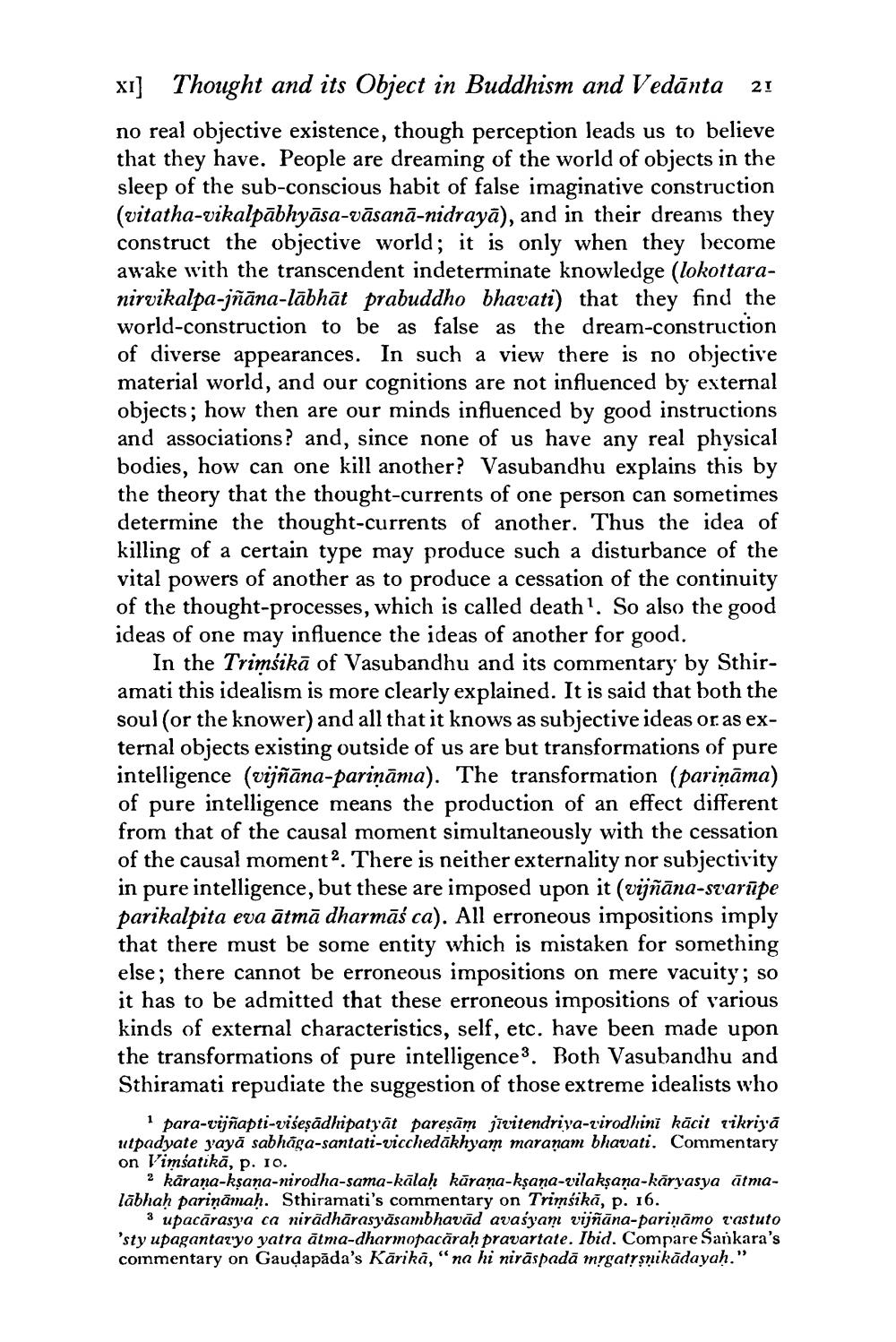________________
Xl] Thought and its Object in Buddhism and Vedānta 21 no real objective existence, though perception leads us to believe that they have. People are dreaming of the world of objects in the sleep of the sub-conscious habit of false imaginative construction (vitatha-vikalpābhyāsa-vāsanā-nidrayā), and in their dreams they construct the objective world; it is only when they become awake with the transcendent indeterminate knowledge (lokottaranirvikalpa-jñāna-lābhāt prabuddho bhavati) that they find the world-construction to be as false as the dream-construction of diverse appearances. In such a view there is no objective material world, and our cognitions are not influenced by external objects; how then are our minds influenced by good instructions and associations? and, since none of us have any real physical bodies, how can one kill another? Vasubandhu explains this by the theory that the thought-currents of one person can sometimes determine the thought-currents of another. Thus the idea of killing of a certain type may produce such a disturbance of the vital powers of another as to produce a cessation of the continuity of the thought-processes, which is called death'. So also the good ideas of one may influence the ideas of another for good.
In the Trimśikā of Vasubandhu and its commentary by Sthiramati this idealism is more clearly explained. It is said that both the soul (or the knower) and all that it knows as subjective ideas or as external objects existing outside of us are but transformations of pure intelligence (vijñāna-pariņāma). The transformation (pariņāma) of pure intelligence means the production of an effect different from that of the causal moment simultaneously with the cessation of the causal moment. There is neither externality nor subjectivity in pure intelligence, but these are imposed upon it (vijñāna-svarūpe parikalpita eva ātmā dharmāś ca). All erroneous impositions imply that there must be some entity which is mistaken for something else; there cannot be erroneous impositions on mere vacuity; so it has to be admitted that these erroneous impositions of various kinds of external characteristics, self, etc. have been made upon the transformations of pure intelligence3. Both Vasubandhu and Sthiramati repudiate the suggestion of those extreme idealists who
1 para-vijñapti-višeşādhipatyāt paresām jīvitendriya-virodhini kācit rikrijā utpadyate yaya sabhāga-santati-vicchedākhyam maranam bhavati. Commentary on Vimsatikā, p. 10.
? kārana-kşana-nirodha-sama-kālaḥ kāraña-kşaņa-vilakṣaṇa-kāryasya ātmalābhah pariņāmaḥ. Sthiramati's commentary on Trimsikā, p. 16.
3 upacarasya ca nirädhārasyāsambhavād avasyam vijñāna-pariņāmo t'astuto 'sty upagantaz'yo yatra ātma-dharmopacărah pravartate. Ibid. Compare Sankara's commentary on Gaudapăda's Kārikā,"na hi nirāspadā mrgatrsnikādayah."




